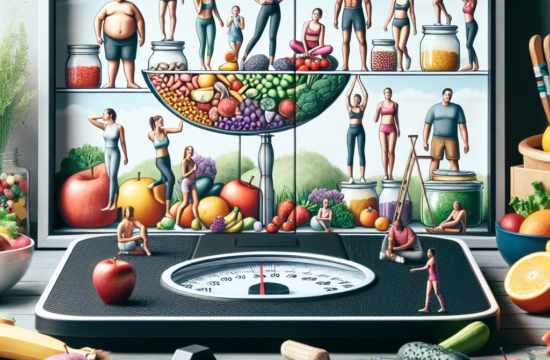Hey there! Let’s chat about something that has probably crossed your mind if you’ve ever tried dieting: “Willpower.” It’s this magical buzzword that we think is the key to sticking to our diets, right? But let me tell you, the truth is a bit more nuanced. Over my years of figuring out what works and what doesn’t in dieting, I’ve learned five key lessons about the role of willpower. So, grab a snack (but maybe a healthy one) and let’s dive into this!
Understanding Willpower
What Is Willpower Anyway?
First off, let’s break down what willpower really means. In its simplest form, it’s the ability to resist short-term temptations for long-term gains. Think of it as your inner superhero battling the forces of junk food that lure you in with their greasy, delicious charm.
Need a Strong Nutrition Boost for Your Diet? Take a Look...
We’ve all been there—standing in front of a fridge filled with fresh veggies and a takeout box of leftover pizza. Willpower is what pushes us to choose the veggies over the cheese-laden goodness, but can we rely on it indefinitely?
Hard truth: willpower can be depleted. Just like a battery that can only hold so much charge, our willpower has its limits, and that’s something I wish I’d learned sooner.
The Science Behind Willpower
So, if willpower wears out, what sparks it in the first place? Studies show that willpower is like a muscle; it gets stronger through practice but also fatigues after prolonged use. This means that if you’re using all your energy to resist that cupcake at lunch, you might find it much tougher to say no to dinner dessert.
Additionally, the brain has a limited capacity for decision-making, which can lead to decision fatigue. After making too many choices (especially tough ones), when it comes to a food decision, you might find yourself opting for whatever is easiest—like that bag of chips you stashed away!
Need a Strong Nutrition Boost for Your Diet? Take a Look...
Understanding this has been a game-changer for me, as I now surround myself with healthier choices, minimizing the strain on my willpower. Instead of battling it constantly, I make it easier for myself.
Why Willpower Alone Isn’t Enough
Relying solely on willpower is like trying to run a marathon with sneakers made for a sprint—it’s just not going to cut it. Many diets emphasize sheer willpower, but that doesn’t address the fundamental emotional and environmental triggers.
Personal experience—when I was trying to stick to a strict diet, I was tempted by food smells wafting from the kitchen during family dinners. Instead of focusing on my needs, I felt like I was constantly being tested. Spoiler: I’d often lose.
This taught me two vital lessons: first, I needed to find a way to enjoy social gatherings without going overboard on unhealthy choices, and second, I had to acknowledge that my willpower alone wasn’t a reliable foundation for long-term dieting success.
Building Healthy Habits
Creating an Environment for Success
One massive realization in my weight-loss journey has been the importance of my environment. Surrounding myself with food I shouldn’t eat makes the struggle all the more real. I began by cleaning out my pantry, tossing out those tempting snacks that just called my name every chance they got.
Instead, I filled my fridge with fresh fruits, vegetables, and healthy snacks. The less processed stuff I had around, the less likely I was to cave in when my willpower was waning.
Remember, you can’t rely on your willpower alone if you’re surrounded by triggers. Designing your environment can do half the work for you—trust me on this one!
Set Realistic Goals
Let’s be real. How many times have you set ambitious goals for yourself, only to crash and burn a few weeks later? I know I’ve been guilty of this! It creates pressure, leading to guilt when we don’t stick to our plans. Instead, I learned to set smaller, achievable goals.
You’d be amazed by how much easier it is to conquer smaller targets and build upon them. Start with something manageable, like swapping out one unhealthy meal a week for a healthier alternative.
Every little bit counts, and celebrating those small victories helps boost your motivation and willpower gradually without feeling overwhelmed!
Establishing Routine
The power of routine cannot be underestimated. Having a structured meal plan not only takes the guesswork out of what to eat but also makes it easier to stick to healthier options. I began scheduling my meals just like I schedule meetings—seriously, I treat them like appointments!
When meals are planned, it reduces the chances of grabbing something quick and unhealthy when I’m starving and tired. I also allocate times for treats in moderation; this way, I don’t feel deprived.
Consistency is key! It helps me balance my diet while building a healthy lifestyle that feels less like a chore and more like a way of living.
Handling Cravings
Understanding Triggers
Let’s face it; cravings can be fierce and unrelenting. But instead of fighting them, what if we tried to understand them? I began keeping a journal to track when cravings hit and what triggered them. Were they emotional? Were they tied to certain activities, like watching TV?
This helped me identify what was really going on. Most cravings come from emotional triggers rather than physical hunger, and recognizing this has made a world of difference in my diet.
Now, when I feel a craving coming on, I can pause and ask myself, “Am I actually hungry, or is this just a nostalgic habit?” It’s all about getting more attuned to your body and mind.
Good HealthY DIETING Solution is Easier Than Most People Think!
Take a Look for Yourself!
Healthy Substitutions
When cravings do hit, having a plan for healthy substitutions is a lifesaver. If I’m craving something sweet, I might reach for a piece of dark chocolate instead of a candy bar. Quality over quantity, right?
Snacks can also be healthy and satisfying—think Greek yogurt with honey instead of ice cream or fruit with nut butter instead of cookies. It keeps me satiated without derailing my goals.
Continuously finding healthier options that satisfy those cravings helps prevent the feelings of deprivation. You’ll be surprised how much easier it is to say no when you know you have great alternatives!
Mindful Eating
Practicing mindfulness while eating has been a game-changer. This means taking the time to enjoy each bite, savoring the flavors, and being aware of how food makes me feel. When I eat mindlessly (like binge-watching my favorite shows), I often overindulge.
Now, I sit at the table (phone down!) while I enjoy my meals. This helps me feel more satisfied and aware of what I’m consuming. Plus, it reduces the chances of wanting to snack afterward when I feel fuller.
Trust me, taking a moment to appreciate your food can make all the difference in how you approach your cravings and overall diet.
Willpower as a Skill
Training Your Willpower
Here’s where things get interesting. Instead of viewing willpower as a static trait you either have or don’t, what if you thought of it as a skill you could train? Over time, learning to say “no” can become easier as you build your willpower muscle. I started with small wins—saying “no” to one dessert at a family gathering.
Gradually, this “no” became easier, and my confidence grew. By recognizing that my willpower could be strengthened, I felt more empowered in my choices.
This skill-building not only enhances willpower but also fosters resilience. When setbacks happen, which they inevitably do, I’m more equipped to bounce back instead of spiraling back into old habits.
Practice Makes Perfect
Remember that practice makes perfect (or close enough!). I made a point to practice willpower in different areas of my life—not just food. Whether it’s sticking to a workout plan or resisting the urge to scroll through social media right before bed, building this skill across various scopes enriches my overall willpower.
Each time I successfully resist a temptation, it reinforces my ability to do so in the future. Consistently evaluating my triggers and learning what makes me stronger has been a powerful process.
Even when I slip up, it’s all part of the learning journey. Growth takes time, and every attempt is a step closer to mastering this skill.
Celebrate Your Progress
Finally, it’s crucial to recognize and celebrate your progress along the way. I used to focus on what I was missing out on rather than the successes I’ve achieved. Now, I celebrate each win, no matter how small. Did I make it through a week without junk food? Heck yes, let’s treat myself to a movie night or a fun outing!
Celebrating progress not only boosts my motivation but also recharges my willpower. It’s all about remaining positive, which helps me stay focused on my goals and continually pushes me forward.
So, if you’re on a journey similar to mine, remember to acknowledge your hard work and enjoy the satisfied feeling of progress at every stage. It makes all the difference!
Conclusion
To wrap it all up, willpower is a complex but fascinating aspect of dieting. It’s not just about resisting cravings—it’s about building habits, understanding triggers, training the skill of willpower, and creating an environment that supports your goals. With these lessons in mind, I’ve turned dieting from a dreaded task into a rewarding journey.
Don’t be too hard on yourself; we all have off days. Instead, remember that change takes time, and every step you take, no matter how small, is progress. Here’s to harnessing our willpower and making it work for us!
FAQs
1. Can willpower really be trained?
Absolutely! Just like a muscle, willpower can be strengthened over time through practice and consistency. The more you resist temptations, the easier it becomes.
2. Why do I feel so drained after making several decisions?
This is known as decision fatigue. Your brain has a limited capacity for decision-making, and after a while, it becomes harder to make clear choices, especially about food. Taking breaks or simplifying decisions can help!
3. How do I handle cravings without giving in?
Understanding your triggers, finding healthy substitutes, and practicing mindful eating can help you manage cravings effectively. Awareness is key!
4. What’s the best way to build a healthy environment?
Start by removing temptations from your home. Fill your fridge with healthy options and create snack stations that promote better choices. A supportive environment does half the work!
5. What should I do if I slip up on my diet?
Don’t beat yourself up! Everyone has off days. Reflect on the experience, recognize what triggered you, and refocus on your goals. Celebrate your small victories and keep moving forward!












